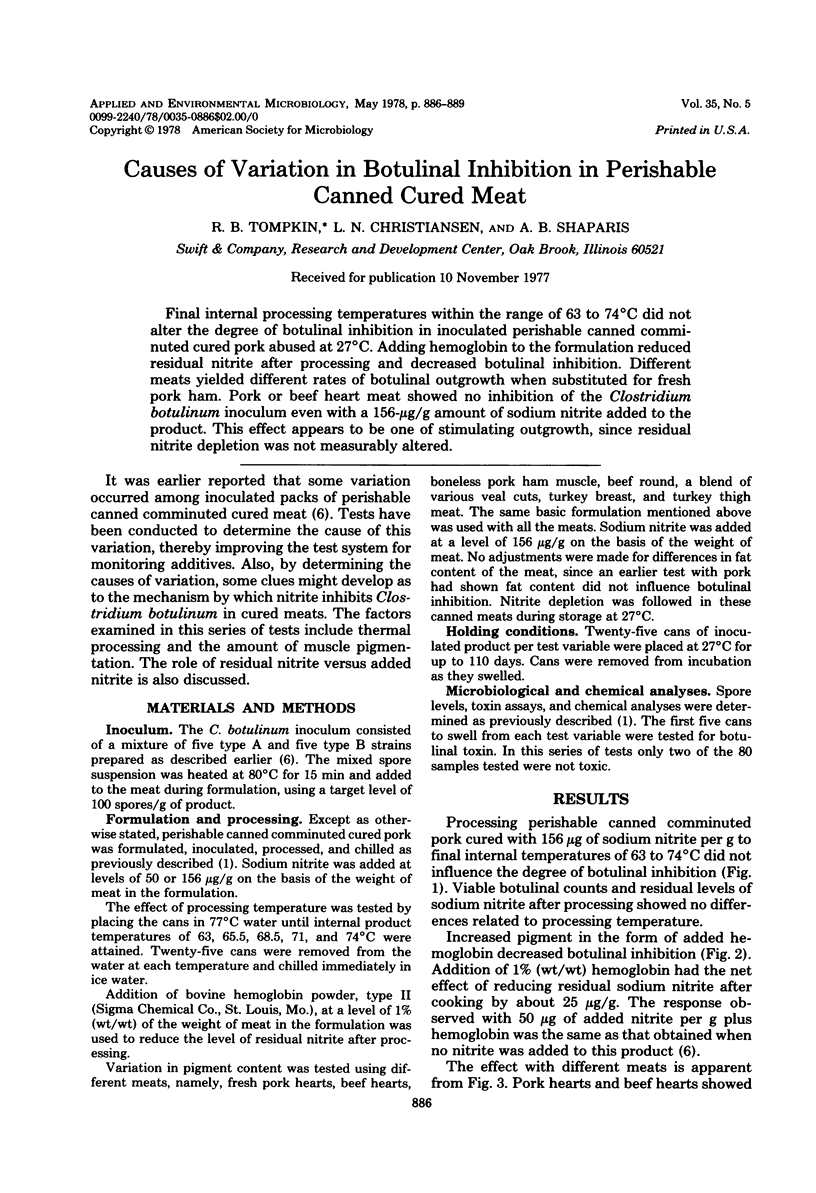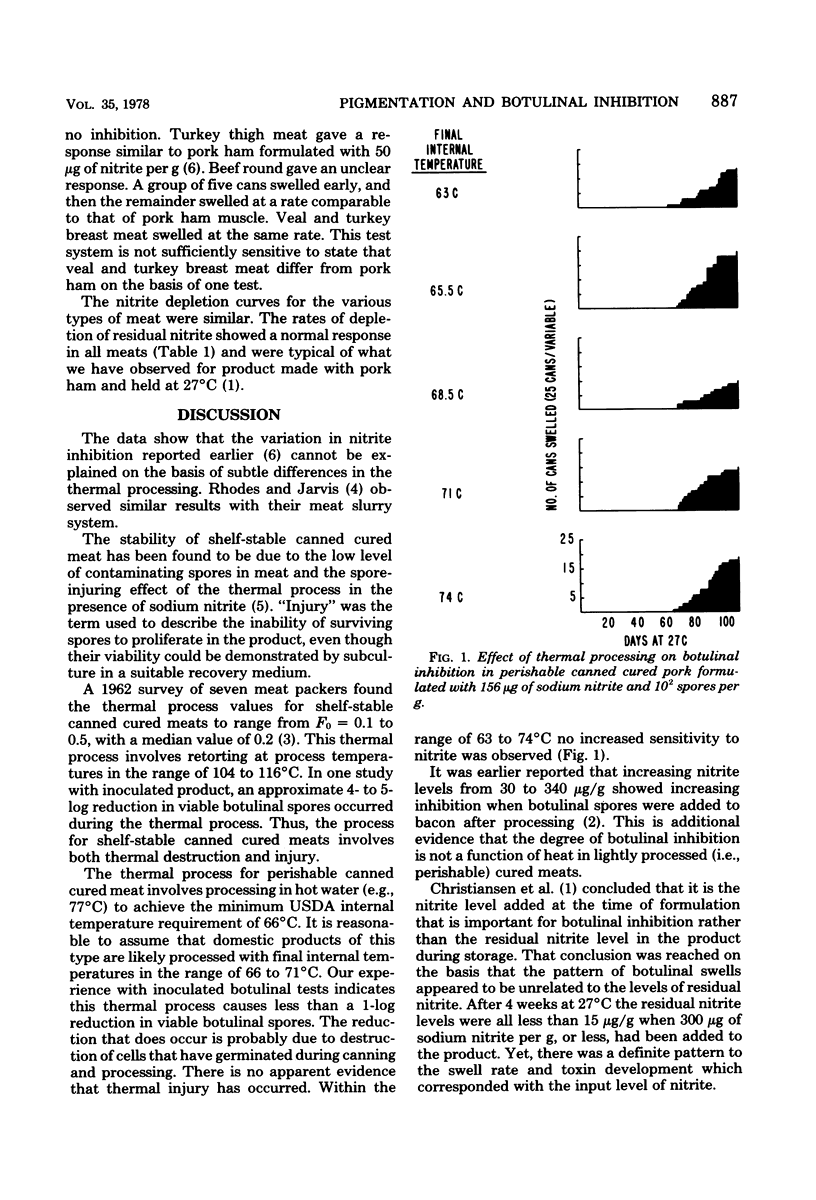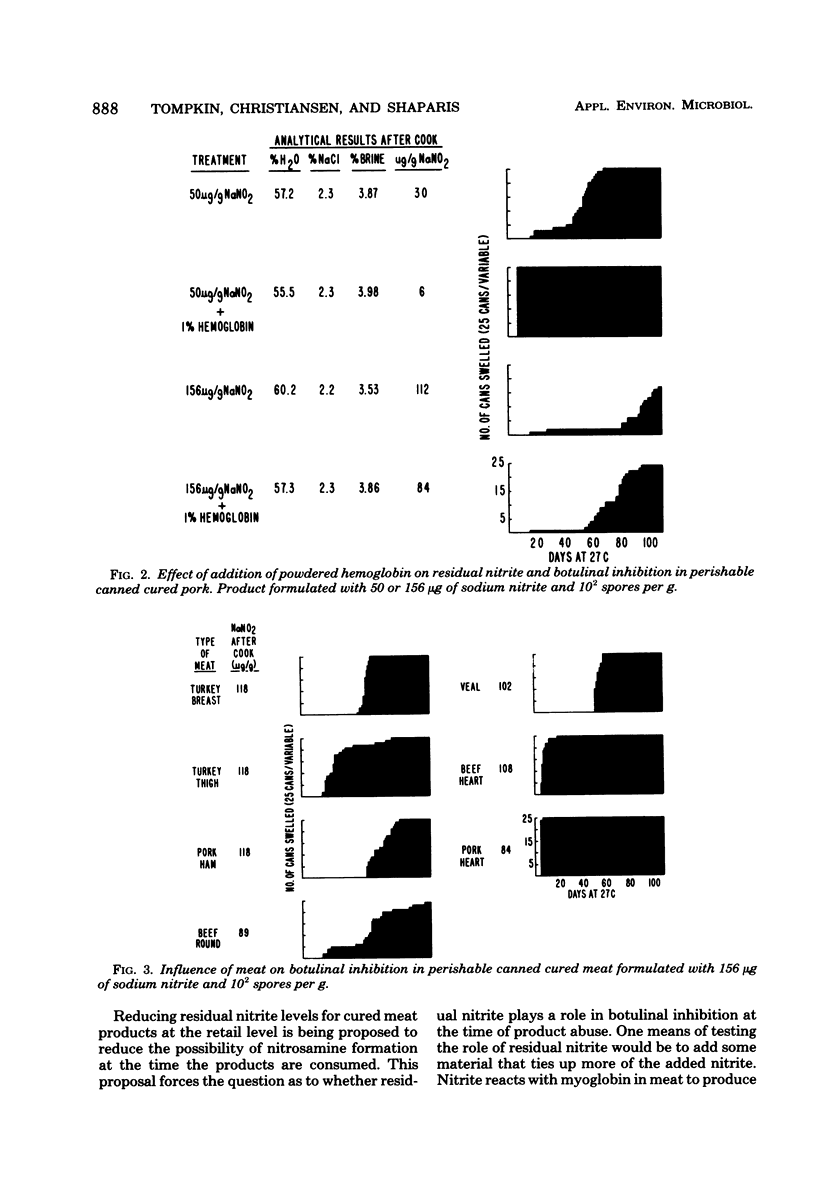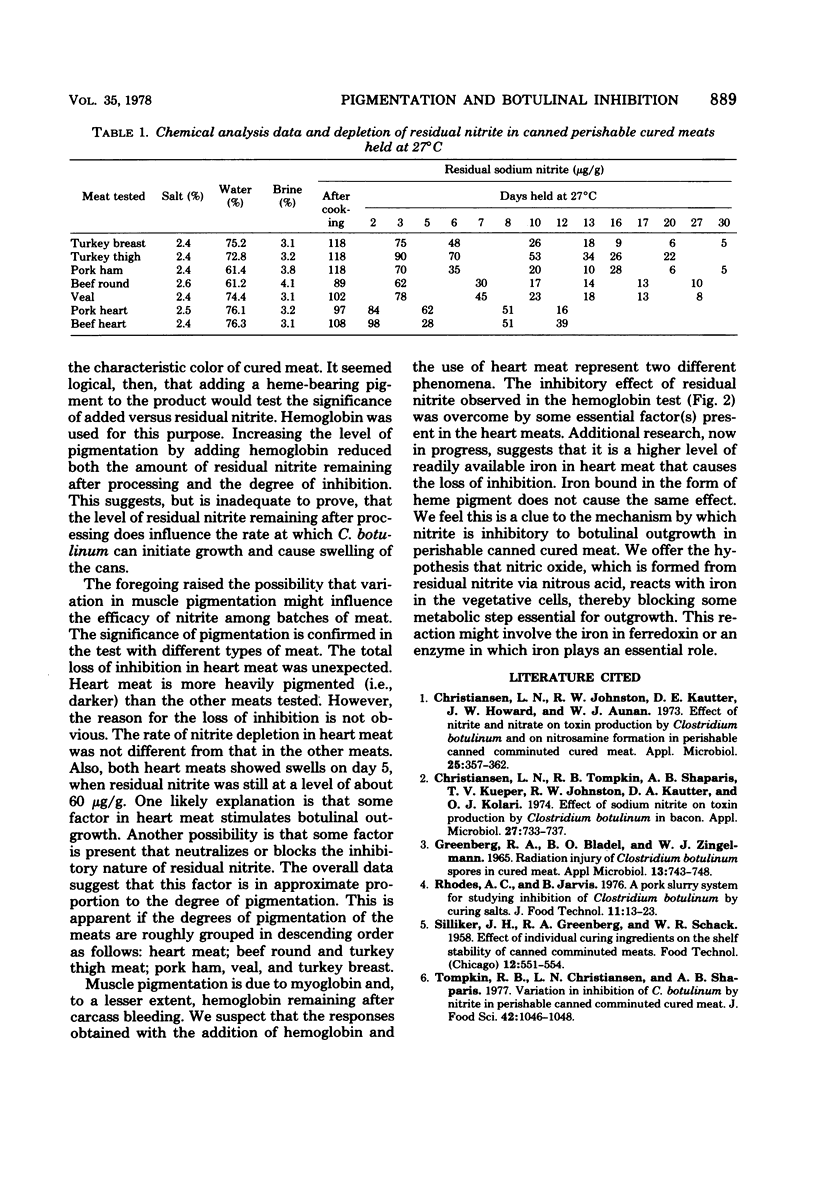Abstract
Final internal processing temperatures within the range of 63 to 74 degrees C did not alter the degree of botulinal inhibition in inoculated perishable canned comminuted cured pork abused at 27 degrees C. Adding hemoglobin to the formulation reduced residual nitrite after processing and decreased botulinal inhibition. Different meats yielded different rates of botulinal outgrowth when substituted for fresh pork ham. Pork or beef heart meat showed no inhibition of the Clostridium botulinum inoculum even with a 156-microgram/g amount of sodium nitrite added to the product. This effect appears to be one of stimulating outgrowth, since residual nitrite depletion was not measurably altered.
Full text
PDF



Selected References
These references are in PubMed. This may not be the complete list of references from this article.
- Christiansen L. N., Johnston R. W., Kautter D. A., Howard J. W., Aunan W. J. Effect of nitrite and nitrate on toxin production by Clostridium botulinum and on nitrosamine formation in perishable canned comminuted cured meat. Appl Microbiol. 1973 Mar;25(3):357–362. doi: 10.1128/am.25.3.357-362.1973. [DOI] [PMC free article] [PubMed] [Google Scholar]
- Christiansen L. N., Tompkin R. B., Shaparis A. B., Kueper T. V., Johnston R. W., Kautter D. A., Kolari O. J. Effect of sodium nitrite on toxin production by Clostridium botulinum in bacon. Appl Microbiol. 1974 Apr;27(4):733–737. doi: 10.1128/am.27.4.733-737.1974. [DOI] [PMC free article] [PubMed] [Google Scholar]
- Greenberg R. A., Bladel B. O., Zingelmann W. J. Radiation injury of Clostridium botulinum spores in cured meat. Appl Microbiol. 1965 Sep;13(5):743–748. doi: 10.1128/am.13.5.743-748.1965. [DOI] [PMC free article] [PubMed] [Google Scholar]


